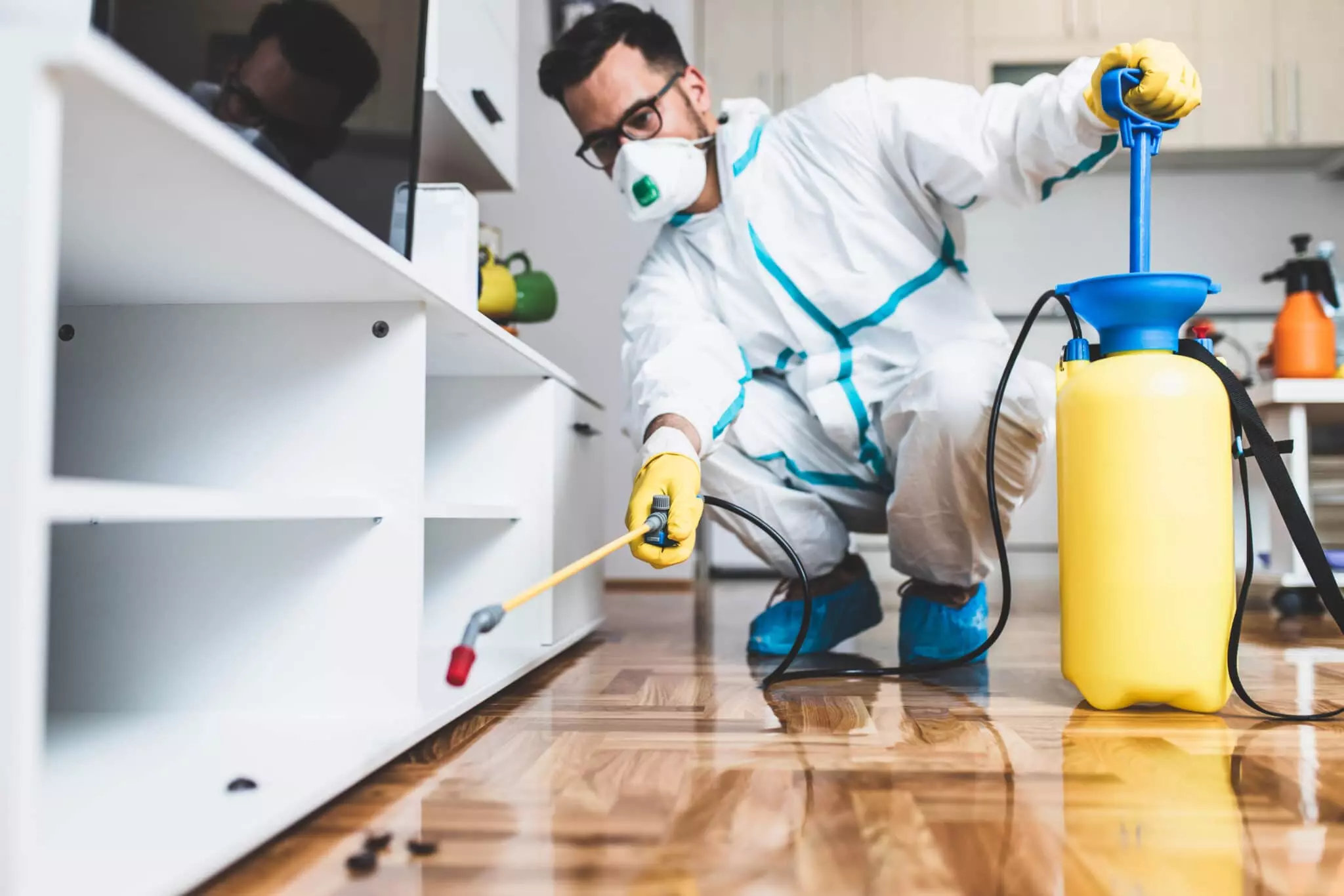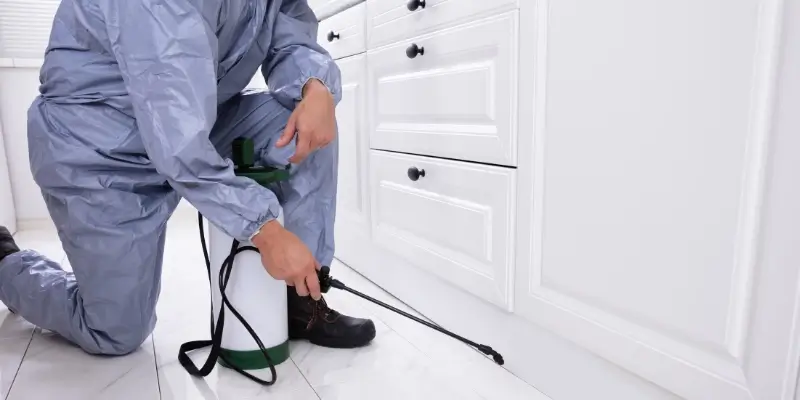Safe and Dependable Insect Control for Lasting Defense
The relevance of trusted and safe insect control can not be overemphasized, specifically in a period where environmental worries are critical. Reliable insect monitoring calls for a diverse strategy that balances ecological stability with the demand for effective parasite suppression. By discovering green solutions and integrated bug management methods, house owners can accomplish long-term protection against invasive varieties while guarding valuable ecosystems. However, the subtleties of these techniques might not be immediately clear, triggering a closer examination of the methods that can result in sustainable insect control outcomes. What steps can be taken to guarantee both safety and effectiveness in parasite management?
Understanding Pest Control Techniques
Insect control encompasses a range of techniques targeted at handling and getting rid of undesirable bugs and rats that can endanger both health and home. Understanding these techniques is crucial for effective insect monitoring.
The main groups of bug control approaches include mechanical, biological, and chemical strategies. Mechanical methods involve physical obstacles and catches to avoid insect access and capture unwanted types. For instance, making use of displays on windows or using sticky traps can significantly lower insect populations without introducing unsafe compounds.

Chemical bug control is often one of the most acknowledged approach, utilizing pesticides to get rid of insects. These chemicals can be reliable but should be used with care to stay clear of adverse results on non-target types and the atmosphere.
Advantages of Eco-Friendly Solutions
Just how can environmentally friendly solutions transform pest control methods? The adoption of environment-friendly parasite control techniques provides numerous advantages, considerably enhancing the performance and safety and security of parasite monitoring (exterminator coquitlam). These services utilize all-natural active ingredients, lowering the dependence on unsafe chemicals that can position threats to human health and the atmosphere. This shift not just shields families and family pets however additionally decreases the potential for dirt and water contamination.

Another benefit is the favorable impact on regional biodiversity. Environment-friendly options are created to target certain bugs while protecting helpful bugs and wildlife, promoting a well balanced ecosystem. This strategy straightens with the expanding consumer demand for lasting practices, boosting the track record of bug control service providers.
Integrated Bug Administration Approaches
The execution of eco-friendly remedies normally results in the fostering of Integrated Bug Administration (IPM) strategies, which better improve insect control efficiency. IPM is an all natural method that incorporates several strategies to take care of bug populations while decreasing environmental influence. This method emphasizes making use of biological, social, mechanical, and chemical controls, guaranteeing a well balanced and sustainable approach of insect monitoring.
One essential facet of IPM is the complete assessment of bug activity and ecological problems. By keeping an eye on pest populaces and identifying their life process, specialists can apply targeted interventions that interfere with the insect's environment or lifecycle, reducing dependence on chemical pesticides. Additionally, cultural techniques such as crop turning and environment control can considerably lessen insect facility and reproduction.
An additional crucial part is making use of organic control agents, such as helpful insects or bacteria, which can normally suppress insect populaces. When chemical applications are necessary, IPM prioritizes the use of low-risk chemicals and applies them selectively, minimizing exposure to non-target organisms and people.
Integrating IPM methods not just boosts pest control effectiveness but likewise promotes a much safer ecological community, aligning with the growing demand for sustainable techniques in parasite management.
Safe Practices for Homeowners
Comprehending the relevance of secure practices in bug control can encourage home owners to effectively handle insect problems while guarding their wellness and the setting. Applying preventative steps and safe techniques is essential in reducing direct exposure to hazardous chemicals.
Property owners should initially examine their setting for conditions that bring in pests, such look at here as standing food, mess, and water waste. On a regular basis cleansing and securing entry factors can prevent bugs from invading the home. Using natural deterrents, such as necessary oils or diatomaceous earth, can offer efficient options to chemical pesticides.
When chemical therapies are essential, house owners need to choose items that are particularly identified as risk-free for property use. It is important to follow application standards meticulously to avoid overexposure. Utilizing targeted treatments in areas where insects are determined, rather than blanket splashing, can considerably lower chemical usage.
Finally, preserving open communication with parasite control specialists is important. Home owners need to ask about the security of products made use of and request green alternatives whenever feasible. By embracing these secure practices, homeowners can develop a healthier living setting while successfully handling pest concerns.

Tips for Long-Term Security
Establishing a bug management method that emphasizes lasting defense can greatly boost the performance of the safe techniques previously reviewed. To achieve this, house owners should execute routine assessments of their residential property, concentrating on hidden areas such as attics, cellars, and crawl spaces. Early detection of bug activity is crucial in avoiding invasions from holding.
In addition, keeping a tidy setting is essential. This consists of view website correct food storage space, quickly cleaning up spills, and regularly getting rid of waste. These techniques reduce attractants that attract parasites into the home. Sealing entrance points, such as cracks around doors and windows, can successfully block prospective bug accessibility.
Landscape design needs to likewise be taken into consideration; maintaining plants trimmed and preserving a distance in between vegetation and the home reduces concealing spots for parasites. Making use of natural deterrents, such as important oils or diatomaceous earth, can further dissuade infestations without fire ant control considering extreme chemicals.
Finally, collaborating with a professional pest control service for periodic analyses can provide an additional layer of protection. These professionals can use customized referrals and advanced therapies, making sure that your home continues to be secured versus bugs in the long-term.
Final Thought
In conclusion, safe and dependable bug control requires a diverse approach that highlights environment-friendly methods and incorporated pest administration. By executing all-natural deterrents, conducting regular examinations, and maintaining proper cleanliness, residential property proprietors can considerably lower pest populations while safeguarding useful bugs and the atmosphere. Collaboration with professional bug control solutions enhances the performance of these approaches, making sure customized options that offer enduring security and assurance against future invasions.
Reliable bug monitoring needs a complex approach that balances environmental honesty with the requirement for effective bug reductions. The fostering of environmentally friendly parasite control techniques offers countless advantages, considerably enhancing the efficiency and security of pest administration.The implementation of green services normally leads to the adoption of Integrated Parasite Administration (IPM) approaches, which additionally enhance parasite control effectiveness. exterminator coquitlam. By monitoring bug populations and determining their life cycles, practitioners can execute targeted treatments that disrupt the bug's environment or lifecycle, decreasing dependence on chemical pesticides.In conclusion, risk-free and reliable pest control needs a complex approach that highlights green methods and integrated bug management